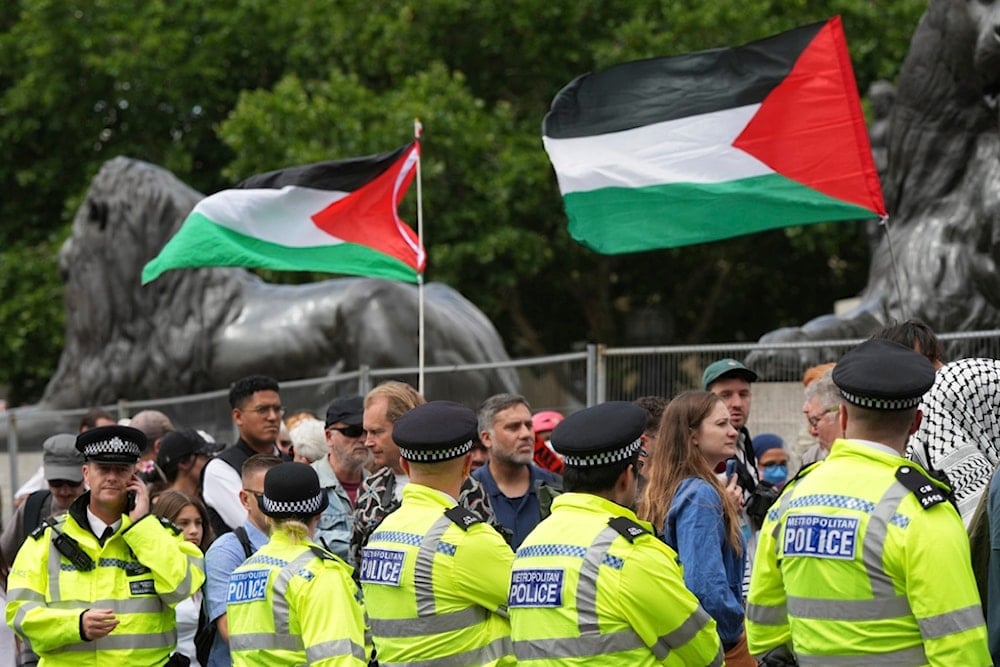Four pro-Palestinian activists face charges in UK base raid
Critics warn that the UK government's move to equate anti-war activism with terrorism signals a deepening authoritarian turn.
-

Demonstrators pass a line of police during a protest by Palestine Action group in London, on June 23, 2025. (AP Photo/Frank Augstein)
Four members of the direct-action group Palestine Action are facing terrorism-related charges following a protest at the UK’s largest airbase, RAF Brize Norton, on June 20. The activists allegedly infiltrated the base and caused damage to two Airbus A330 MRTT Voyager aircraft, which they claim are linked to Britain’s support for Israeli military operations in Gaza.
The protest, which involved the use of red paint to symbolize Palestinian blood, reportedly caused £7 million in damage. It is worth noting that the aircraft are used for refueling missions tied to UK operations in the Middle East.
The activists, aged 22 to 35, have been charged with conspiring to access a prohibited site and to commit criminal damage. The Crown further alleges their actions were “prejudicial to the safety or interests of the UK,” invoking national security concerns.
They remain in custody and are scheduled to appear at Westminster Magistrates’ Court on Thursday.
On that note, counter-terrorism police are expected to argue for a terrorism classification, a move widely criticized by civil liberties groups as a dangerous precedent in criminalizing protest.
Palestine Action has claimed responsibility, defending the protest as a necessary act of resistance against what it describes as Britain’s complicity in Israeli aggression. The group is known for targeting UK-based arms manufacturers linked to "Israel", particularly Elbit Systems, and maintains that direct action is essential to disrupting the supply chains enabling war crimes in Gaza.
Criminalized solidarity
In a sweeping crackdown on political dissent, UK lawmakers on Wednesday voted to label Palestine Action a terrorist organization. The move, condemned by the group as "an abuse of power," would make it a criminal offense to belong to, support, or even express solidarity with the movement, carrying penalties of up to 14 years in prison. The group has vowed to challenge the designation in court, with an urgent hearing expected on Friday.
Critics, including civil liberties advocates and international observers, warn that the UK government's move to equate anti-war activism with terrorism signals a deepening authoritarian turn, one that seeks to silence those who stand in solidarity with the Palestinian people and oppose the state's role in their oppression.
Read more: Filton 18: Victims of UK-'Israel' crackdown on anti-Elbit protests

 3 Min Read
3 Min Read










